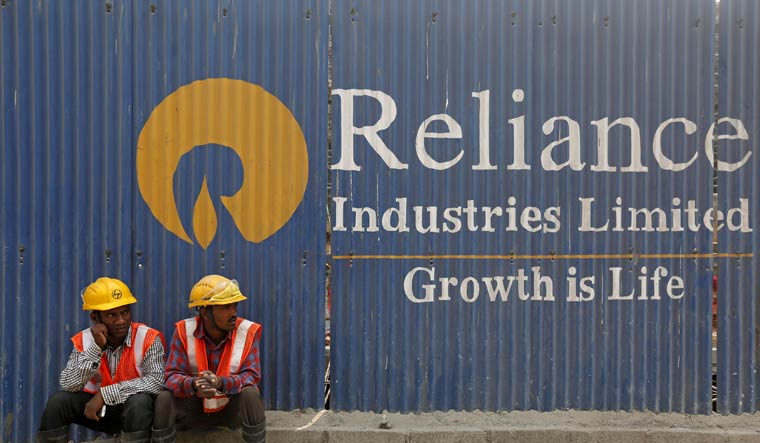Reliance Industries reported a 1.8 per cent year-on-year drop in its net profit for the January-March quarter, although at Rs 18,951 crore it was still better than expectations. Several analysts have now raised their target price on the oil to telecom conglomerate.
What's driving the euphoria? The consumer businesses should continue to expand and with the new energy business also likely to rollout in the near-future should drive the next phase of growth, they say. At the same time, with much of the 5G-related capital expenditure completed, capex cycle is seen moderating and that is expected to drive an improvement in return ratios and reducing net debt.
Sanjay Mookim, head of research at JP Morgan, noted fourth quarter capex spend at around Rs 23,200 crore was down 48 per cent from a year ago and 23 per cent lower sequentially.
"RIL has operated at material negative FCF (free cash flow) for the last three years, driven by spending in telecom. As that fades, with an EBITDA (earnings before interest, taxes depreciation and amortization) run rate of $20 billion a year, RIL is expected to deliver positive free cash flow for the next three years," he said.
In the backdrop of falling capex, RIL also reported a decline in net debt at Rs 116,281 crore in March 2024, versus Rs 125,766 crore a year ago.
"RIL is almost done with its capex cycle, investing in world-scale projects such as petcoke gasification, off-gas crackers and telecoms, which are expected to drive future growth in months to come. RIL has started commissioning and remaining projects of KG-D6, which shall enhance overall gas production. RIL’s foray into the new energy business shall unleash the next leg of growth, besides aiding its conventional business," said Jal Irani of Nuvama Institutional Equities.
Nikhil Bhandari and Manish Adukia of Goldman Sachs point that RIL's consolidated returns are at an inflection point in FY24 and they estimate cash return on cash invested will expand by 180 basis points to 12 per cent in FY27, highest since 2011.
"We see a stronger pipeline of catalysts ahead: a potential telecom tariff hike in the second half of calendar 2024, stronger same-store sales growth in retail as new stores fully ramp up, potential start of a new energy giga complex in the second half of 2024 (initially with 5GW module line, rising to fully integrated 20 GW solar module capacity by FY27), and potential value unlock through a listing of consumer (Jio/Retail) businesses," the analysts said.
Retail and telecom now account for half of RIL's consolidated EBITDA. In the fourth quarter, the 11 per cent revenue growth in the consume retail growth was the weakest run rate in 10 quarters, even as EBITDA rose, analysts noted.
JP Morgan's Mookim feels the company undertook some restructuring in the retail business, closing around 500 stores amounting to 1.6 million square feet in the quarter.
Headline square feet per store was up a sharp 15 per cent YoY in Q4 (revenue per store is up YoY, but revenue per square feet is down for the quarter), implying the company closed smaller stores and added bigger ones," he said.
Mookim feels continued weakness in retail revenues could be a risk to valuations.
The macro environment remains a concern for the retail business, but Puneet Gulati and Saurabh Jain of HSBC expect retail to recover by the second half of the current financial year.
"Investments in retail will likely yield a return in the medium term and drive longer-term sustained growth," they said.
HSBC has raised its target price on RIL to Rs 2,770 from Rs 2,600. Goldman Sachs has raised its price target on RIL to Rs 3,435 from Rs 3,400. Nomura has also increased its target price on RIL to Rs 3,450 from Rs 3,165.
Nomura is optimistic on all the businesses of RIL. It sees strong growth in new commerce business at Reliance Retail; oil to chemicals business should benefit from strong global oil demand; and robust subscriber growth, coupled with a possible tariff hikes post elections should aid Reliance Jio, opined Nomura's Hemang Khanna.



